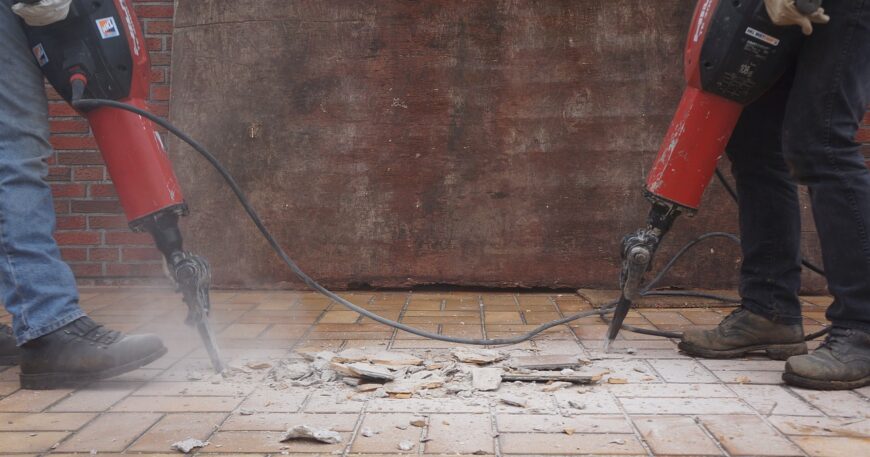The use of Subcontractors in the field of demolition of buildings is common practice nowadays. These companies or individuals are often hired to take on specialised tasks. They can be either too complex or too labour-intensive for the main contractors to carry out themselves. However, working with subcontractors in the demolition sector presents both opportunities and challenges.
Which contracts do subcontractors fulfil in demolition?
A common job for subcontractors is the complete demolition of buildings. This involves demolishing the entire structure from the ground up, including the disposal of all materials. It requires careful planning and execution to ensure both worker safety and compliance with environmental regulations.
In selective demolition, only part of a building or certain materials are removed. This may be necessary if, for example, a partial building renovation is planned or certain hazardous materials such as asbestos need to be removed. Selective demolition requires precision and attention to detail in order to avoid damage to the remaining structures.
Gutting jobs involve the removal of interior fittings and installations while the exterior structure of the building remains intact. This is often a first step in larger renovation projects. Subcontractors who perform gutting work must work carefully to preserve the structural integrity of the building.
What are the tasks?
Demolition subcontractors often specialise in specific tasks. These include, for example, the removal of asbestos or other hazardous materials, the removal of concrete or the demolition of high-rise buildings. Their specialisation enables them to carry out these tasks efficiently and safely. This is a great advantage for main contractors.
An important aspect of demolition is the management and disposal of the waste produced. Subcontractors often take on the task of properly sorting, recycling or disposing of waste. This requires not only logistical skills, but also knowledge of legal regulations on the disposal of hazardous waste.
Many subcontractors have specific technical knowledge and specialised machines that are required for certain demolition work. This includes, for example, demolition excavators, concrete cutters or even blasting technology. The availability and expertise in the use of such machines make subcontractors valuable partners.
What challenges does this pose?
One of the biggest challenges when working with subcontractors is communication. Misunderstandings or unclear instructions can lead to delays, errors and increased costs. It is important to set up clear communication channels and regular meetings. This ensures that everyone involved is on the same page.
Ensuring the quality of subcontractors' work is critical to the success of a demolition project. Main contractors must establish quality control mechanisms and carry out regular inspections. This ensures that the work meets the required standards.
Demolition work is associated with considerable safety risks. It is crucial that subcontractors take all necessary safety precautions and comply with legal regulations. This includes training workers, providing the necessary protective equipment and implementing safety protocols on site.
How can we help you?
Our company has over 25 years of experience in the field of cleaning services and the associated work. We mediate Specialised personnel from Eastern Europe.
Our staff have all the latest paperwork and licences. They are quickly available and can usually be deployed within a week. All employees speak German and are familiar with the German labour culture.






